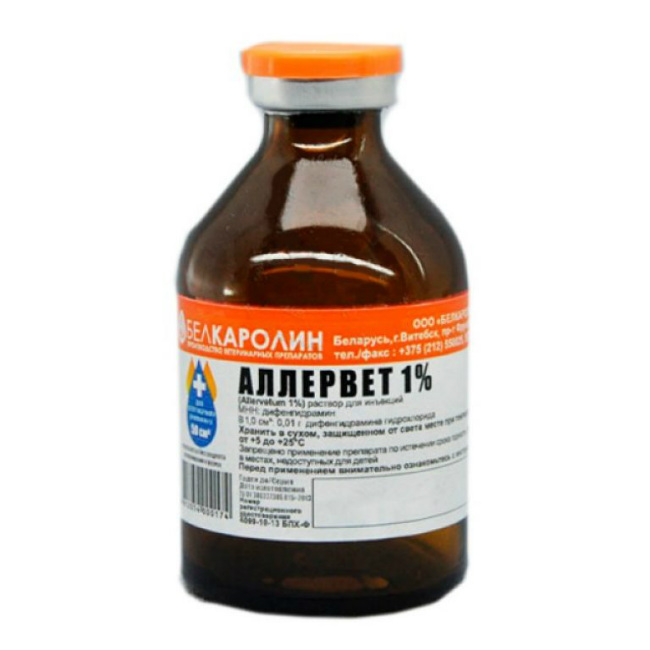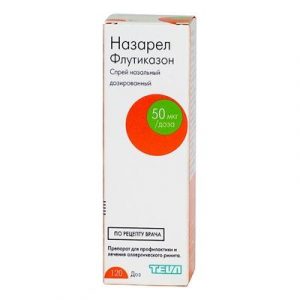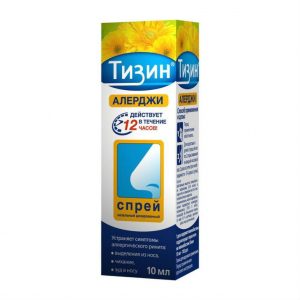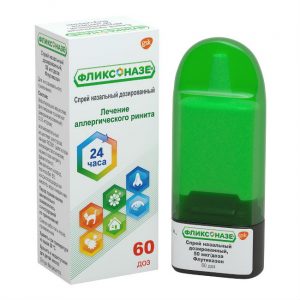Description
Pharmacological action
Diphenhydramine, which is part of the drug, is an antihistamine. Its mechanism of action is the blockade of H1 histamine receptors and the deprivation of histamine points of application. When administered prophylactically, diphenhydramine binds to cell receptors earlier than histamine, and when used for therapeutic purposes, it exhibits a competitive effect, replacing histamine at cell receptors.
The drug reduces the body’s response to histamine, relieves spasm of smooth muscles caused by histamine, reduces the permeability of capillaries, prevents the development of tissue edema, weakens the hypotensive effect of histamine prevents and weakens the course of allergic reactions. Diphenhydramine has some local anesthetic effect, relaxes the smooth muscles of the intestines, the uterus, bronchi, shows a sedative, moderate hypnotic and antiemetic effect, has a photoprotective effect. Its action occurs 15-30 minutes after administration and lasts 4-6 hours.
Diphenhydramine is biotransformed in the liver and excreted by the kidneys.
Indications
Assign to small domestic animals and young farm animals to prevent and alleviate allergic reactions, with serum sickness, anaphylaxis, anaphylactic shock, pruritic and atopic dermatitis, allergic conjunctivitis, rhinitis, polyarthritis, rheumatism and muscle, to reduce the reaction during transfusion of blood and blood replacing fluids, to prevent vomiting, as a sedative in combination with sleeping pills, in complex therapy for diseases of the respiratory system, gastrointestinal and genitourinary tract, for sedation before general anesthesia.
Contraindications
The use of the drug is contraindicated in case of its individual intolerance and poisoning with drugs that inhibit the central nervous system, with urinary retention, glaucoma, hyperthyroidism.
C becoming
medicament in the form of an injectable solution the active substance contains 0, 01 g of diphenhydramine hydrochloride and solvent up to 1.0 cm3 in 1.0 ml of the drug.
Dosage and administration
The drug is administered to dogs and cats intramuscularly, subcutaneously at a dose of 0, 2-0.4 cm3 per kg of animal weight three to four times a day to ferrets intramuscularly – 0.05-0.2 cm3 per kg of animal weight twice a day to young farm animals intramuscularly or subcutaneously – 0.025-0.1 cm3 per kg animal mass two to four times a day.
The drug is compatible with other drugs, enhances the action of drugs that depress the central nervous system (sleeping pills, analgesics, antipsychotics, tranquilizers, sedatives, etc.). With their simultaneous use, care should be taken.
In case of drug overdose, it should be discontinued, anticonvulsants (sodium thiopental, chloral hydrate), plasma fluids, diuretics, drugs that stimulate breathing and cardiac activity should be prescribed.
Side effects
The drug can cause urinary retention and defecation, dry oral mucosa.
active substance
Diphenhydramine




